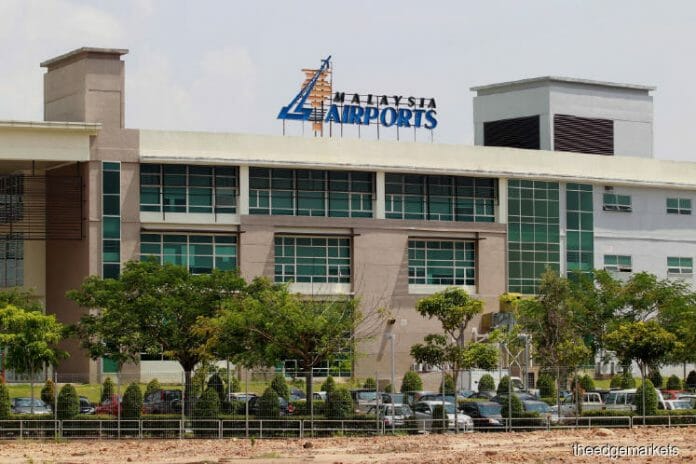Speculation on a potential privatisation may have triggered a sharp share price rally for Malaysia Airports Holdings (MAHB), but governance and regulatory issues may cause a buyer pause.
CGSCIMB, in its Company Flash Note today (Feb 27), said negotiations for a longer ISG concession, as well as higher aeronautical tariffs and a new OA in Malaysia, may be more concrete positives.
CGSCIMB reiterates Add with an unchanged SOP-based end-CY24F TP of RM8.05.
MAHB’s share price rose 5.1% to a high of RM8.44 at the close of today’s morning trading, likely fro reports on the possibility of forming a consortium to own and run airport operator MAHB and that “an agreement could be inked in as early as 2-3 weeks and may involve some form of equity participation on the part of GIP”.
It’s said that Khazanah is currently the largest shareholder of MAHB with a 32.6% stake, while EPF has 7.06% equity interest.
If it is true that GIP is seeking equity participation in MAHB, CGSCIMB thinks that the most feasible means of achieving that is for Khazanah and EPF to first privatise MAHB in a general offer, and then sell a substantial minority stake to GIP.
This is because MAHB’s shares are not liquid enough for GIP to acquire a substantial stake in MAHB in the open market over a reasonable time frame, and Khazanah has described MAHB as a national strategic asset and hence is unlikely to reduce its stake in MAHB.
GIP owns infrastructure assets around the world, including 49.99% in London Gatwick Airport (not listed), 80.9% in Edinburgh Airport Limited (not listed), 75% in London City Airport (not listed), and 37% in Sydney Airport (SYD AU, not rated).
All of GIP’s equity stakes in airports are either majority stakes or substantial minority stakes.
The issue with the privatisation theory is that the Malaysian government owns a golden share in MAHB, with the right to veto key corporate decisions and appoint top management.
Airports in Malaysia are also subject to regulation, and the Malaysian Aviation Commission (MAVCOM) is preparing a framework that will determine future airport tariffs, including mechanisms involving capping ROIC at WACC levels from 2027F onwards, and with MAVCOM preferring to implement a hybrid-till approach that will offset non-aeronautical revenues (e.g. from rental and commercial sources) against aeronautical tariffs, with the aim of preventing MAHB from exercising its monopolistic power in the airport sector.
CGSCIMB are unsure if GIP will be able to stomach both the government’s golden share and the regulatory capping of future ROICs.
If privatisation is unlikely, what else could be driving the share price?
CGSCIMB thinks that MAVCOM may announce higher aeronautical tariffs (for both the Actual Passenger Service Charge (PSC) and the aircraft landing and parking fees) next month, which may then lead to an announcement of the terms of the new Operating Agreement (OA) with the government.
The new OA may incorporate a capex recovery mechanism, may increase the Benchmark PSC rates that MAHB is entitled to book into its P&L, and/or reduce the user fee rates that are payable to the government.
CGSCIMB has modelled some but not all of the potential upside to our forecasts and target price.
MAHB may also be seeking to extend the concession, in CGSCIMB’s view, as the operating term ends in 2034F.
As such, they expect MAHB to be negotiating for the rights to develop a new terminal building at its Istanbul Sabiha Gokcen (ISG) airport in Turkey as ISG’s second runway was opened in Dec 2023.
To achieve this, CGSCIMB thinks that MAHB may have to cut its shareholding in ISG from the current 100%, with Reuters reporting on 26 Dec 2023 that an executive of Turkey’s IC Holding (not listed) Serhat Sogukpinar was appointed ISG’s CEO as part of a cooperation deal between MAHB and IC Holding”.
Rerating catalysts include a possible privatisation, upsides to the MAVCOM and OA regulations in Malaysia, and potentially longer ISG concession.
Downside risks include MAHB’s monthly international passenger traffic over Sep-Dec 2023 has stagnated at 78-79% against equivalent 2019 levels, suggesting a slowing rate of recovery.









